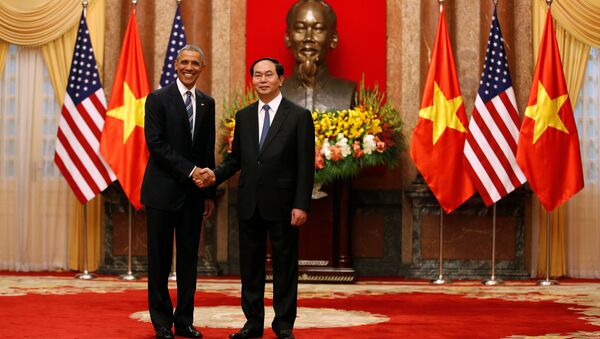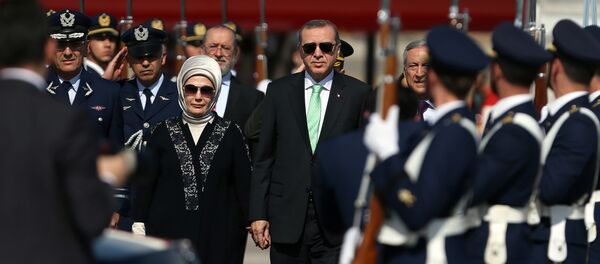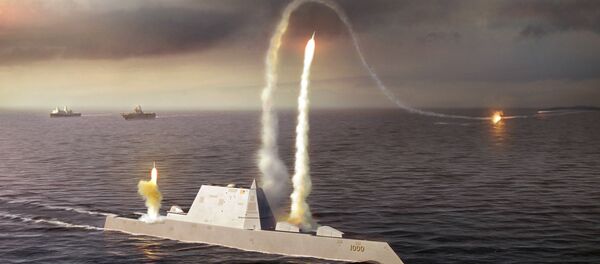On Monday, US President Barack Obama began a three-day visit to Vietnam attempting, in part, to counter China’s growing influence in the region amid ongoing territorial disputes in the South China Sea. The visit marks the third time that a US leader has visited Hanoi since the countries restored diplomatic relations in 1995.
The extended visit signifies the growing importance that Washington attaches to Hanoi in its efforts to contain China. The three-day visit has focused on substance rather than kindly-worded pageantry, with the Americans agreeing to lift an arms embargo imposed on Vietnam decades ago.
In response to scrapping the arms embargo, the Vietnamese government signed a deal to purchase 100 Boeing commercial jets, worth about $11.3 billion. The two belligerents appear to be inching toward a full normalization of bilateral relations, providing the West another foothold in Beijing’s neighborhood.
Diplomatic progress between the two countries during the first day of the visit indicates that lingering animosity over the Vietnam War has subsided. The conflict, which ended just over four decades ago, has been branded by some historians as genocide.
The US occupation of Vietnam resulted in the death of some 1.35 million Vietnamese, including nearly 700,000 civilians, as a result of intensive carpet bombing and widespread chemical weapon and defoliant use. The war also led to the death of some 58,000 US troops.
Are the Americans Attempting to Encircle Beijing?
In an editorial, China Daily observes that American attempts to curb Beijing’s influence "bode ill for regional peace and stability by further complicating the situation in the South China Sea, and potentially turning the region into a tinderbox of conflicts."
Those concerns find root in the ongoing territorial disputes in the South China Sea involving the Spratly and Paracel archipelagos, to which a half-dozen Asian countries claim territorial rights. The resource-rich islands are surrounded by prime fossil fuel deposits.
The West’s primary focus of the islands, however, is their proximity to the Chinese mainland, making them useful as a means to constrain Beijing’s reach.
The US argues that China must adhere to the process laid out in the treaty of the Law of the Sea, of which the US is not a signatory, and under which the Chinese likely have the strongest claim. The Chinese have countered by constructing military air hangers on the islands, and conducting commercial flights to the island, in a show of sovereignty.
Washington alleges that Beijing’s government, whether or not they have a genuine right to the territory, are circumventing the diplomatic process and are taking steps to militarize the islands, with reports from the US claiming that China has deployed ballistic missiles and heavy weaponry.
In the context of this simmering dispute, the American overture toward Vietnam represents a disquieting turn of events for Beijing, in spite of Beijing’s influence on Hanoi as a primary trade partner.
President Obama insists that the visit is aimed at normalizing relations with Vietnam, not containing and encircling China. Nonetheless, the timing of the three-day visit and the hefty concessions provided by the US are noted, and Beijing remains watchful.







